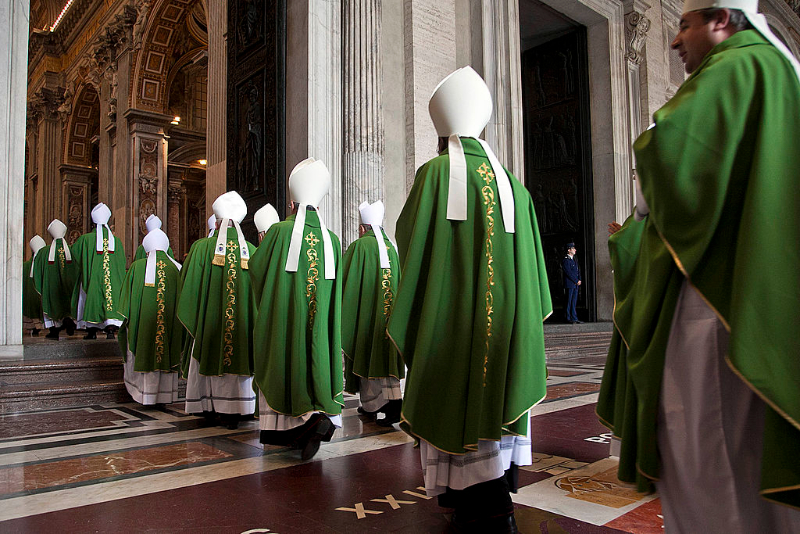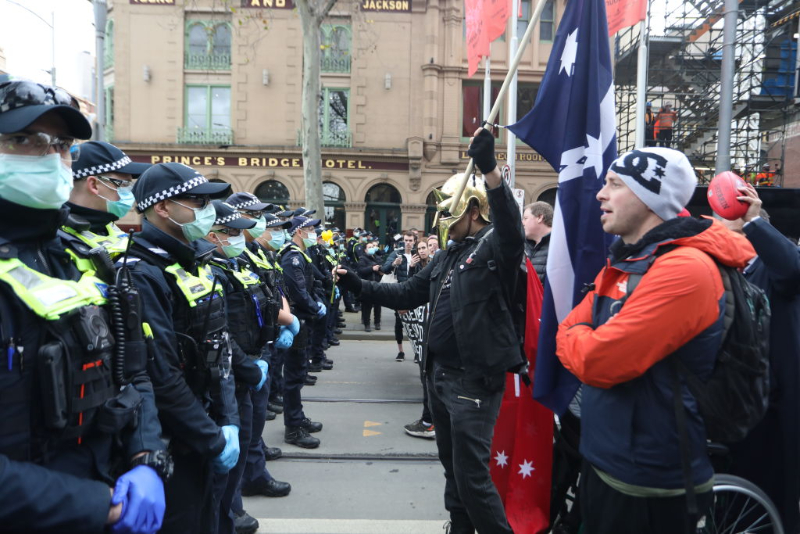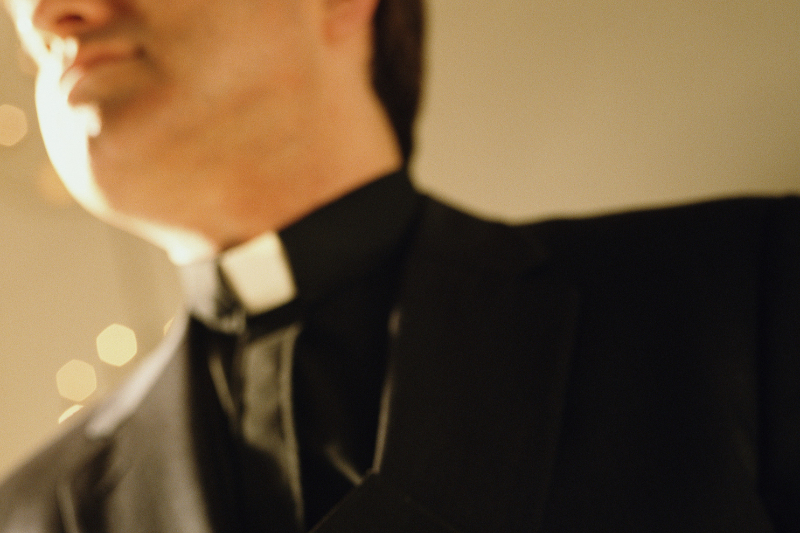Keywords: Australian Church
There are more than 200 results, only the first 200 are displayed here.
-

RELIGION
- Brian Lucas
- 21 October 2021
32 Comments
One takeaway from the First Assembly of the Plenary Council that might come as no surprise is that the controlling elite in the Church, the bishops, are not dependent on popular support. They are appointed not elected. They are generally irremovable. They come from a culture that is about preserving ‘the tradition’ (which can easily be expanded to include historical novelties that are not really part of the tradition). Moving into the new world of synodality brings obvious challenges.
READ MORE 
-

AUSTRALIA
- Frank Brennan
- 18 October 2021
11 Comments
The High Court decision has been confusing for many people because it both upheld Ridd’s right to intellectual freedom and the university’s entitlement to sack him for breaches during disciplinary proceedings which had followed upon two wrongly argued censures. Basically, Ridd won on the point of intellectual freedom but he lost on the other aspects of his behaviour which had nothing to do with the exercise of intellectual freedom.
READ MORE 
-

RELIGION
- Tracy McEwan, Patricia Gemmell
- 06 October 2021
15 Comments
Annabel Crabb’s ABC TV documentary series Ms Represented had us gasping, laughing and raging all at once. The series struck an achingly familiar chord as women from different political parties and generations voiced their common experience of sexism and misogyny in Australia’s parliament, elucidating just how hard it is for women to have a voice at the table in Australian institutions of power.
READ MORE 
-

RELIGION
- Bill Uren
- 05 October 2021
15 Comments
As a result of the pandemic, like other religious observances, the availability of the Sacrament of Penance has been drastically curtailed, and it is unlikely that recourse to the sacrament will be as frequent as previously even when the restrictions are lifted. Further, the confidence of the laity in the inviolability of the seal has, understandably, been undermined, a consequence of which may again be that recourse to the sacrament will be in decline.
READ MORE 
-

RELIGION
- Nimmi Candappa
- 30 September 2021
25 Comments
At one level a lot is riding on this Plenary Council. Only the fifth such Council in the Australian church history, there is a great sense of anticipation among a wide variety of groups: those estranged from the church, priests looking for direction, women bereft of opportunities to express their faith and seeking a look-in, parents of uninterested children, those ostracised from the church, as well as those not wanting any changes at all.
READ MORE 
-

AUSTRALIA
- Julian Butler
- 28 September 2021
9 Comments
Walking down to the local Saturday morning street market, I wasn’t expecting to find myself amidst the beginnings of a violent protest. Seeing some police, I thought they were out and about to ensure the public weren’t taking too many liberties with the slightly eased restrictions that had come into effect for Melbourne the previous night. But half a dozen on each corner of Church St and Bridge Rd in inner-city Richmond suggested something more.
READ MORE 
-

RELIGION
- John Warhurst
- 23 September 2021
41 Comments
Synodality, the new term which is sweeping the church, is an aspirational goal not a proven methodology. For this reason, it is a test case for the lasting impact on church reform of the papacy of Pope Francis. He has given us an aspiration but also set us a test.
READ MORE 
-

RELIGION
- Gideon Goosen
- 23 September 2021
60 Comments
The Final Report of the Royal Commission into Institutional Responses to Child Sexual Abuse identified clericalism as a significant contributor to abuse across religious institutions Australia-wide. Clericalism is rooted in a theological belief that the clergy are different to the laity, having undergone an ‘ontological change’ at ordination, and feeds the notion that the clergy may not be challenged. And according to the report, the culture of clericalism is on the rise in seminaries in Australia.
READ MORE 